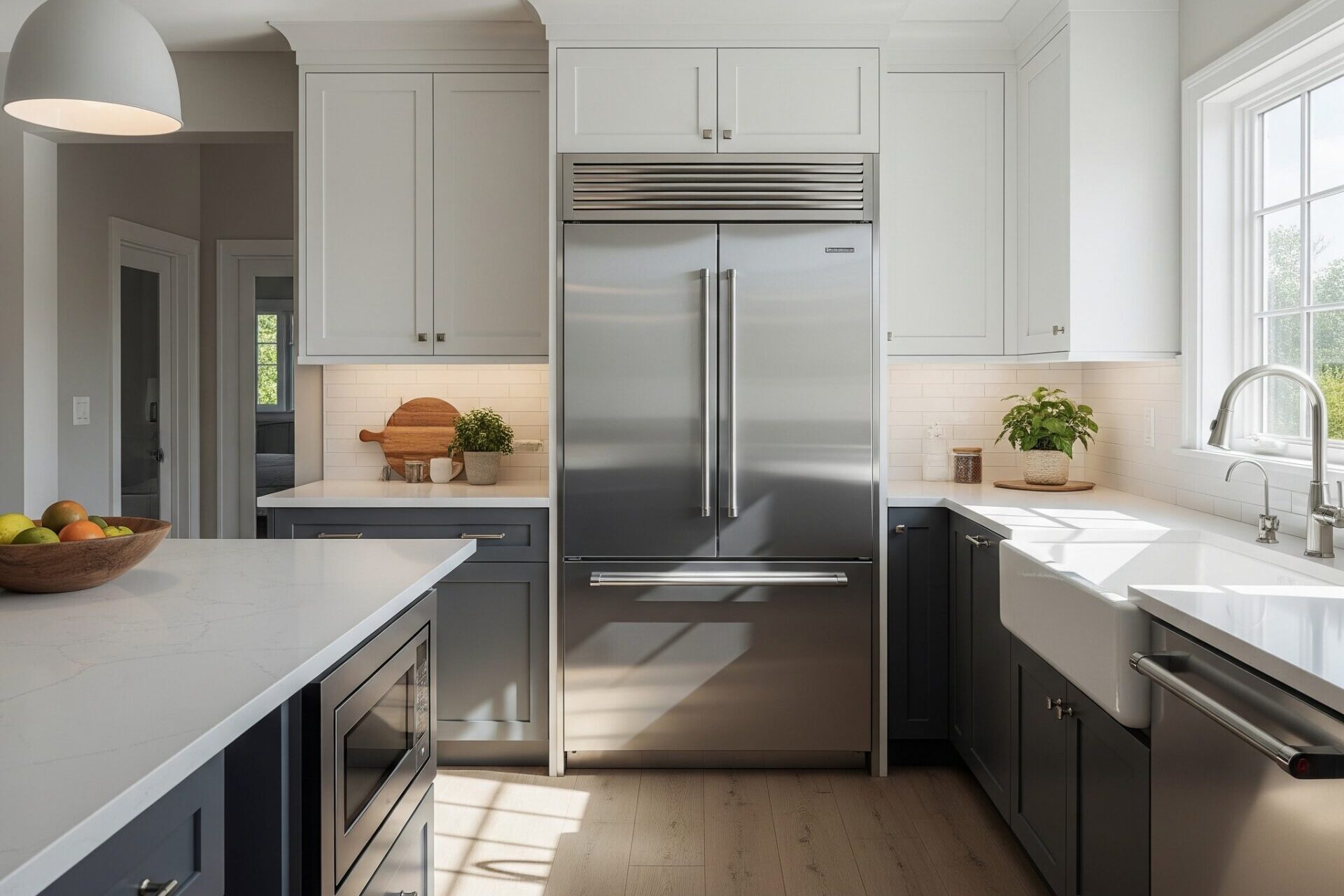
Question: How Long Should a Fridge Last?
Answer: How long should a fridge last? A refrigerator should last 10-20 years. Proper maintenance, like cleaning the coils, can extend its lifespan.
Refrigerator Lifespan: What to Expect
How long should a fridge last? This question sits at the forefront of many homeowners’ minds, especially when facing a potential replacement. Refrigerators represent a significant investment, and understanding their typical lifespan helps with budget planning and informed purchasing decisions.
A refrigerator’s lifespan depends on various factors, including brand, model, usage, and maintenance. While a definitive answer remains elusive, this article explores the average lifespan, influencing factors, and signs indicating replacement time. You will gain valuable insights into maximizing your fridge’s life and making sound choices regarding this essential appliance.
Average Refrigerator Lifespan
The average refrigerator lifespan ranges between 10 and 20 years. This wide range reflects the diverse factors affecting each appliance’s longevity. High-end models often last longer, sometimes exceeding 20 years with proper care.
Budget-friendly refrigerators generally have a shorter lifespan, typically lasting around 10 to 13 years. This difference stems from variations in build quality, component durability, and advanced features.
Understanding this average lifespan helps homeowners anticipate potential replacement costs and proactively plan for future appliance purchases. It also provides a benchmark for assessing whether a malfunctioning fridge warrants repair or replacement.
Click here for more information on refacing kitchen cabinet doors Toronto
Related Article: Is a Fridge Colder on 1 or 7?
Related Article: What Style of Refrigerator Lasts the Longest?
Signs Your Refrigerator Needs Replacing
Several signs indicate your refrigerator may be nearing the end of its life. Excessive noise, including loud humming, knocking, or clicking, often signals a problem with the compressor or other internal components. Increased energy consumption is another warning sign. If your electricity bills rise inexplicably, your refrigerator’s inefficiency may be the culprit.
Spoiled food, despite proper storage, can indicate that your refrigerator is no longer maintaining the correct temperature consistently, compromising food safety and indicating a potential malfunction.
Frequent repairs, becoming increasingly costly and frequent, often signal that replacing the unit offers a more cost-effective solution in the long run.
Extending the Life of Your Refrigerator
Proper maintenance practices significantly extend a refrigerator’s lifespan. Regularly clean the condenser coils, located at the back or bottom of the unit, to ensure efficient heat dissipation. Check and clean the door seals to maintain a tight seal, preventing cold air from escaping and reducing the strain on the compressor.
Avoid overloading the fridge, as this restricts airflow and forces the compressor to work harder. Maintain proper organization to ensure efficient cooling and easy access to items.
Ensure adequate ventilation around the refrigerator, leaving sufficient space between the unit and the walls for optimal airflow and heat dissipation.
Making Informed Purchase Decisions
When the time comes to replace your refrigerator, consider factors such as energy efficiency, size, and features. Look for Energy Star certified models to minimize energy consumption and reduce your utility bills. Choose a size that suits your household’s needs, avoiding oversized units that waste energy and undersized units that struggle to maintain optimal temperatures.
Explore available features, such as adjustable shelves, temperature-controlled drawers, and ice makers, selecting those that align with your lifestyle and preferences. Research different brands and models, comparing their features, reliability, and customer reviews before making your purchase.
Conclusion
How long should a fridge last? While the average ranges from 10 to 20 years, several factors influence the actual lifespan. Understanding these factors empowers homeowners to make informed decisions regarding maintenance, repairs, and replacement.
By following proper maintenance practices and addressing issues promptly, you can extend your refrigerator’s life and maximize its efficiency. When the time for replacement arrives, careful consideration of your needs, budget, and available features ensures a wise investment that serves you well for years to come. By implementing these practices and choosing wisely, you optimize your fridge’s longevity and enhance your overall home appliance management.

Blue Malue Get in touch with Blue here.
